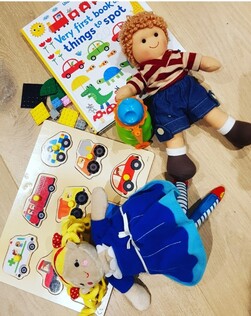 Speech, language and communication needs can impact upon many areas of life. When these needs are identified early, interventions can be introduced and this support can help to aid their development. How can you look for signs that may indicate speech, language and communication needs? Make sure to pay special attention to these three areas: 1.Listening and understanding - Do they struggle to pay attention and/or listen, often being the last to respond? Do they understand simple questions and instructions? 2.Language Are they limited in what they say and how they can communicate their needs and wants? 3.Interactions - Do they struggle when interacting with others, or appear isolated? Do they struggle with interpreting non-verbal communication or tend to avoid eye contact? 4.Speech - Are they difficult to understand due to unclear or muddled speech? For an outline of the typical language development stages and what to expect at particular ages: https://ican.org.uk/i-cans-talking-point/parents/ages-and-stages/ What can I do to develop my child’s language skills at home? Ten top tips for supporting language development at home:
Books
If you are concerned about your child’s speech and language development, speak to the SENCO at your child’s nursery or school or contact your GP. They will be able to signpost you to local Speech and Language Therapy Services.
0 Comments
Leave a Reply. |
AuthorSpeech and Language therapists from Love to Communicate have started this blog to share their experiences and thoughts working in this wonderful profession Archives |